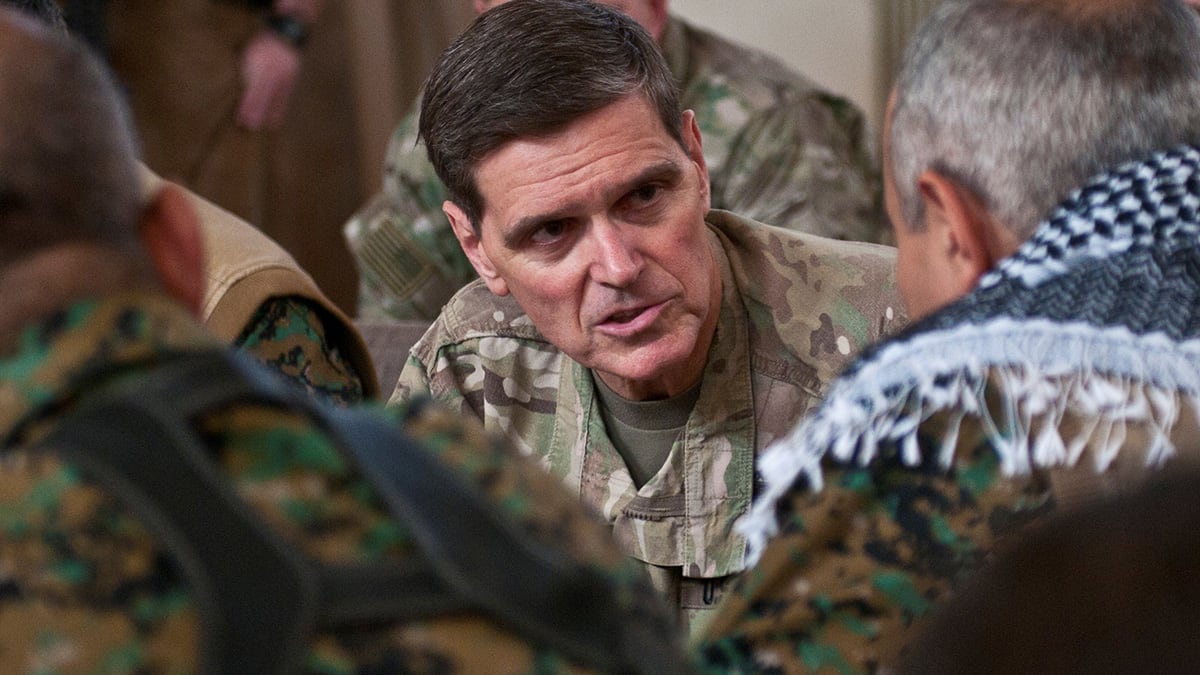Gen. Joseph Votel, former head of U.S. Central Command, relied heavily on the Kurdish-led Syrian Democratic Forces when he was the military commander who oversaw the dismantling of the Islamic State’s so-called caliphate.
Votel, who recently retired, was clearly disheartened by the Oct. 5 announcement that the White House was pulling U.S. troops out of northeast Syria, making way for an impending Turkish invasion that threatens to slaughter America’s Kurdish allies.
The news left Votel, in his understated Minnesota way, “disappointed” and worried about how President Donald Trump’s abrupt move, in the wake of a phone call with the Turkish president, might play out in the future for a U.S. military that has relied on on-the-ground partners since Operation Desert Storm nearly three decades ago.
“I, like others I imagine, am disappointed in this policy decision,” he recently told Military Times. “There was a lot of work undertaken to avoid a decision like this. The SDF have been exceptional partners and we would have not been successful against ISIS in Syria without them.”
In the fight to eradicate ISIS, the Kurdish-led SDF “absorbed nearly 11,000 casualties,” Votel said. “I am concerned what this might mean for future partnerships.”
The concern is that this U.S. decision to abandon the allies who fought and died alongside U.S. troops will discourage future allies from doing the same.
After sharing is concerns directly with Military Times, Votel also published his concerns on Tuesday in The Atlantic, saying the “abrupt” decision to withdraw was “made without consulting U.S. allies or senior U.S. military leadership and threatens to affect future partnerships at precisely the time we need them most.”
Votel is far from alone in his concerns. Even members of Trump’s own party have chastised him for abandoning a key ally at a desperate moment.
Trump explained that his decision was an effort to end forever wars and fulfill a campaign promise by bringing home America’s sons and daughters so they no longer have to die for another nation’s fight. Furthermore, some of his supporters have argued there is no need for U.S. troops to be in Syria because it is just a short flight from Iraq and the U.S. could easily insert troops in an emergency.
We at Military Times can be counted among those disappointed by Trump’s rash move for several reasons.
On the more micro level, ISIS has been defeated as a maneuver army and nation state. But it has morphed into a virulent global insurgency. The Kurdish-led SDF has a very tentative hold on tens of thousands of captured ISIS fighters and, should they be attacked by the Turks, will struggle to keep a lid on those prisoners. The last thing the world needs is several divisions worth of newly released jihadis hell bent on revenge.
Looking at Votel’s larger point — concern for future partnerships — remember that current U.S. military doctrine is to operate by, with and through partner forces. Turning our backs on partners facing slaughter sends a terrible signal. Will this nation’s strategic objectives be met if those partners no longer trust us?
In many ways, the U.S. saw remarkable success in its strategy of fighting ISIS via local partners on the ground instead of large deployments of U.S. troops. The Kurds have been our most reliable allies in a fraught region filled with tremendous influence from our adversaries in Moscow, Tehran and Damascus.
Losing the future trust of potential partner forces on the ground is likely to result in more wars, more deployments and more bloodshed.
Trump’s decision to abandon the Kurds in Syria is short sighted and dangerous.





